
In the mid-to-late 1980s, colleagues and friends were surprised when I transitioned from working as an on-camera investigative TV reporter to cover the then-fledgling high-technology industry for specialized trade magazines.
After all, they reasoned, how could I be content covering semiconductors, memory boards, server hardware, software and computer networks after working as a mainstream journalist covering stories such as lurid political and law enforcement corruption scandals; drug trafficking; prostitution; dumping tainted substances on unsuspecting third-world nations; and cover-ups by big business when their planes, trains and automobiles malfunctioned? How could I trade in “murder and mayhem” for the staid, sterile world of high technology?
They needn’t have worried.
Admittedly, mastering the technology was a challenge. For the first few weeks, every time I did a story on PALs and had to spell out the acronym I wrote “Police Athletic League” instead of “Programmable Array Logic.” But I felt at home covering technology right away.
Rehabs, Poaching and a Worm
Within a month, I was chronicling tales of high-tech companies sending their top executives off to rehab for drug and alcohol addiction. There was a rash of top executives leaving established powerhouses and taking top engineers and sales executives with them, which in turn precipitated a slew of lawsuits for theft of trade secrets and patent infringement.
Things really got interesting when Robert Tappan Morris launched his now-infamous Internet worm. There were myriad other tales of sex scandals involving corporate executives, board of director fights and coups, price-fixing, hostile takeovers, corporate espionage, and fiscal chicanery that entailed everything from embezzlement and theft to cooking the books.
Reality TV and the tabloids have nothing on high-technology industry hijinks.
‘ Burning Fevers, Hysterics and Phrensies’
Fast forward to what’s making headlines during these dog days of summer 2010. The ancient Greeks and Romans believed that the dog days of summer (named after the constellation Sirius, or Dog Star) lasted from late July to early September, and hot weather foreshadowed evil doings. John Brady’s “Clavis Calendarium of 1813 describes it as “an evil time when the seas boiled, wine turned sour, dogs grew mad, and all creatures became languid, causing to man burning fevers, hysterics and phrensies.” The recent spate of high-tech headlines seems to bear that out.
Here’s a sampling:
The HP board of directors abruptly fired CEO Mark Hurd, after allegations of sexual harassment surfaced.
Oracle CEO Larry Ellison publicly blasted the HP board for firing Mark Hurd.
Oracle sued Google for alleged patent and copyright infringement involving the use of Java intellectual property in Google’s mobile Android operating system.
Google StreetView maps prompted privacy lawsuits and raids in several countries, including South Korea.
Google released version 6 of its Chrome Web browser and vowed to issue a stable new release every six weeks.
The headlines provide an accurate assessment of both the current state and the direction of the high-tech industry. Four words say it all: sex, money, power and posturing.
The Real Reasons
The HP board of directors’ decision to fire CEO Mark Hurd after five years of stewardship remains cloaked in mystery. Hurd may or may not have been guilty of fudging expense reports and engaging in conduct not up to HP’s standards with Jodie Fisher, a contract HP “advisor” and sometime actress.
In addition to being an advisor, Fisher also received US$5,000 to attend HP events acting as a “meet and greet” hostess. Fisher, who retained the services of celebrity lawyer Gloria Allred, may or may not have been a victim of harassment. We don’t know for sure, because all of the principals in this tableau are mum.
Rumors are rife about the “real reasons” the HP board may have shown Hurd the door: 1) He may have been more involved than was previously thought in the 2006 HP board of directors “pretexting” scandal. At that time, HP board members illegally spied on other board members to learn the source of news leaks; and 2) Hurd was exceedingly unpopular with rank-and-file HP employees.
By all monetary measures, Hurd’s five-year stint at HP was a resounding success. For that, Hurd will walk away with a $40 to $50 million severance package. No one knows how much Fisher received, because Hurd and Fisher reached a private settlement over whatever transpired between them. But it must be a pretty good sum, because Fisher issued a very upbeat and conciliatory statement saying she did not intend for Hurd to lose his job and wishing Hurd, his family and HP all the best.
What’s wrong with this picture? Plenty.
The Real Victims
The real victims here are HP’s rank-and-file employees, American workers and sexual harassment victims — both men and women — who lack the clout to hire a Gloria Allred to rattle her saber for another 15 minutes of fame and a quick, inglorious settlement.
HP employees have seen their ranks decimated with each new acquisition and round of layoffs. HP currently ranks No. 9 on the Fortune 500 list. In the past several years, it has acquired Compaq, EDS, 3Com and Palm. Those mergers and acquisitions helped HP become the first high-tech company to have annual revenue exceeding the $100 billion threshold.
HP is also first in another category — albeit an unwelcome one: Despite its stellar financial performance, HP has cut more jobs (most of them here in the U.S.) over the last decade than any other high-tech firm. The head count stands at approximately 85,000.
So Mark Hurd gets $40 to $50 million, and tens of thousands of HP’s American employees get shown the door.
Then there’s Ms. Fisher. I know nothing about the woman. One must presume if Hurd was willing to settle with her that her claim had some merit. However, as soon as I heard she was represented by Allred, I cringed. Allred has turned into a modern day Carrie Nation for the tabloid-TV generation. In an age of instant and continual information via the tabloids and the Web, publicity is the chief currency — the more salacious and lurid, the bigger the settlement. I phoned Allred’s office to inquire how many pro bono and non-celebrity sexual harassment cases she’s handled. I haven’t heard back yet, and I’m not too hopeful.
The Equal Employment Opportunity Commission (EEOC) received 12,696 complaints of sexual harassment in the workplace — 16 percent of them by men. The EEOC says it recovered $51.5 million in monetary benefits for those nearly 13,000 workers. That total is probably just about what Mark Hurd, Jodie Fisher and Gloria Allred pocketed among the three of them. Nice work if you can get it.
The Buddy System
That brings me to another prominent headline of the past week: Oracle chief Larry Ellison, in an interview with The New York Times, blasted the HP board for firing his longtime friend Mark Hurd. Ellison’s comments have all the credence of a professional athlete convicted of using steroids writing an editorial extolling the virtues of doping.
Oracle, which completed its acquisition of Sun Microsystems earlier this year, is gearing up to axe up to one-third to one-half of Sun’s workforce of more than 25,000. No one is sure exactly how many Oracle employees will be pink-slipped, but estimates range from 5,000 to as many as 10,000. Oracle disclosed in a recent government finding that it will write off $825,000 in restructuring charges.
The question is, will Larry Ellison make room for Mark Hurd at Oracle? He might. Hurd has a proven record of cutting costs, cutting people, and thus delivering value to shareholders.
Perhaps the real measure of a company’s success should not be how many jobs it cuts, but how many jobs it creates for the American worker.
Oracle also made headlines and flexed its muscles last week with the announcement that it was suing Internet search engine giant Google for allegedly infringing on patents for the Java technology Oracle acquired with Sun, which is used in Google’s mobile Android operating system. This is all about Oracle making a preemptive strike to try and contain Google in what’s shaping up to be a battle of high-tech titans.
Google’s Android OS runs on many major mobile phones, including some manufactured by Motorola and HTC. The implications are enormous. Don’t expect this one will ever get to court. Neither firm wants to spend millions or expend precious corporate resources in a protracted legal battle, which would be detrimental to both sides. Expect them to settle. But we can also expect the acrimony between these two rivals to rise commensurately with the stakes in the mobile market.
Cutting-Edge Nuisance
Google, meanwhile, engaged in some posturing of its own. The company released beta version 6 of its Google Chrome Web browser. Google also said it would issue a stable new release of the browser every six weeks. This move is clearly designed as a challenge to Microsoft Internet Explorer, Mozilla Firefox and Apple Safari.
While I applaud Google’s initiative and desire to retain its competitive edge, releasing a new version of its browser every six weeks is overkill. No matter how fast Google or any vendor makes its browser, the actual speeds are still determined by the user’s broadband. And frankly, the constant application upgrades to everyday packages like Adobe, WordPress and the various browsers are a nuisance. One can barely log on to an application without being hounded to upgrade to the latest version.
These days, companies feel compelled to make an announcement just to keep their names in the headlines at all costs. There’s never a dull moment in the high-tech industry, especially during the dog days of summer.
Laura DiDio is principal at ITIC, a research and consulting firm that covers the high-tech industry.



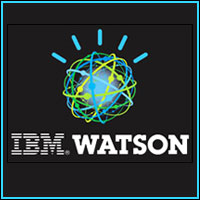
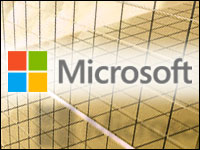
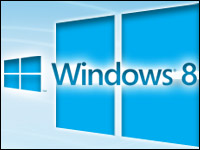
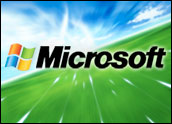
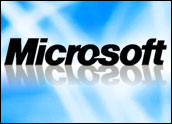

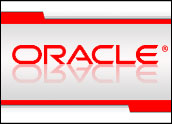
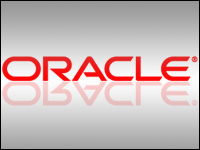

































Social Media
See all Social Media